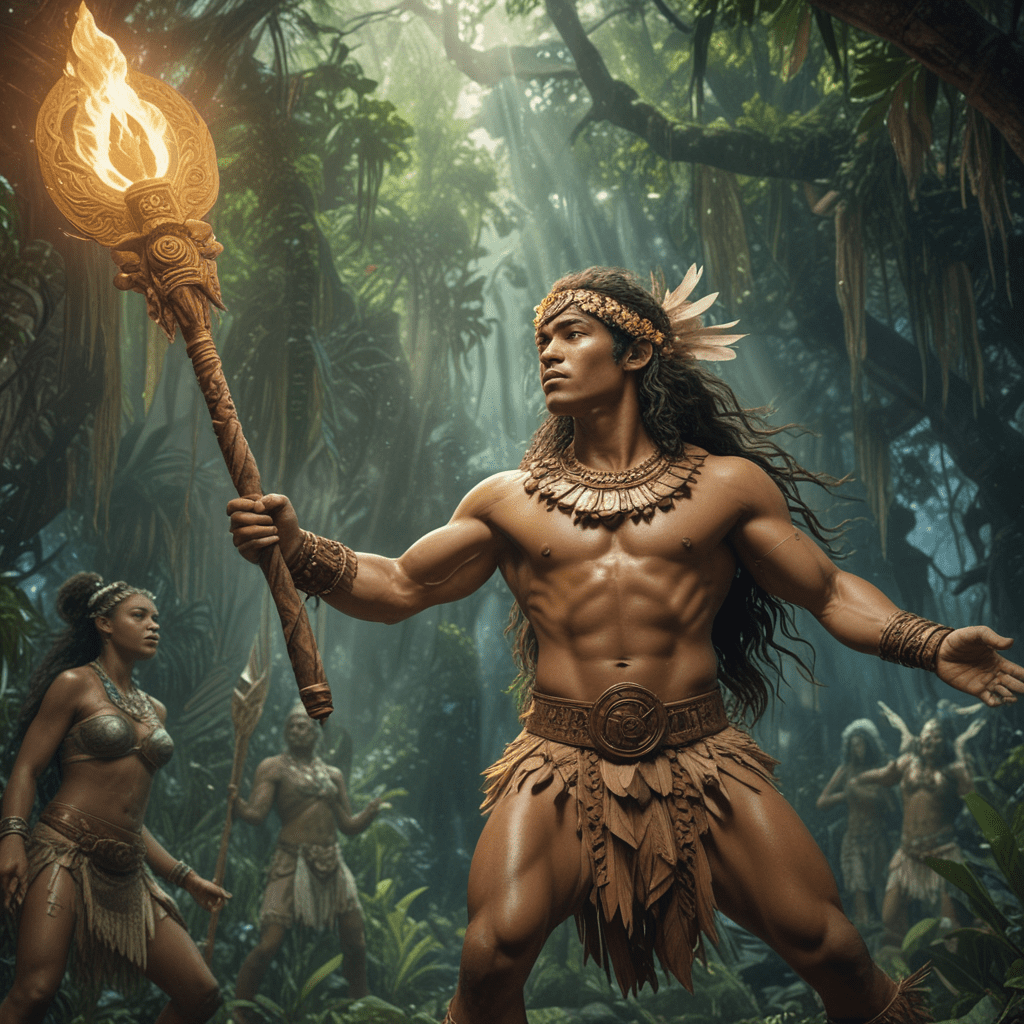The Role of Ancient Deities in Shaping Ethics and Morality
1. Introduction
Ethics and morality are fundamental aspects of human existence, guiding our behavior and decision-making processes. Ethics refers to the principles that govern a person’s or group’s behavior, while morality is often viewed as the specific beliefs about what is right and wrong. Throughout history, various cultures have looked to ancient deities to provide moral guidance and a framework for ethical behavior.
Ancient deities, revered figures in polytheistic cultures, played significant roles in shaping societal values. From the Greek pantheon to the gods of ancient Egypt, these deities influenced the ethical constructs of their respective civilizations. Understanding the role of these divine figures in shaping ethics and morality is essential for comprehending the foundation of human values and the evolution of moral thought.
2. The Function of Deities in Ancient Societies
In polytheistic societies, gods were not only objects of worship but also integral components of daily life. Each deity often represented specific aspects of human experience and societal values. For example:
- Nature: Gods associated with agriculture, weather, and natural phenomena.
- War: Deities embodying courage, strategy, and conflict.
- Wisdom: Gods symbolizing knowledge and understanding.
These deities served as moral exemplars, providing models for ethical conduct. Divine authority influenced social norms, with many cultures believing that their gods upheld moral order. The expectations of the deities often translated into societal laws and customs, reinforcing a collective moral framework.
3. Case Study 1: Greek Deities and Moral Philosophy
The Greek pantheon, featuring gods like Zeus, Athena, and Apollo, illustrates how deities were viewed as ethical figures. Zeus, despite his flaws, was seen as a king of the gods who upheld justice. Athena represented wisdom and strategy, while Apollo embodied harmony and reason.
The myths surrounding these deities significantly impacted Greek moral philosophy. Thinkers like Socrates and Plato drew upon these narratives to explore concepts of justice, virtue, and the nature of the good life. However, the duality of divine behavior often raised questions about the nature of ethics—if gods could act immorally, what did that imply for human ethical standards?
4. Case Study 2: Egyptian Gods and the Concept of Ma’at
In ancient Egypt, the concept of Ma’at—representing truth, balance, and order—was central to their moral framework. Deities such as Osiris and Isis were instrumental in guiding moral conduct. Osiris, associated with the afterlife, emphasized the importance of living a righteous life.
The belief in an afterlife where one’s heart was weighed against the feather of Ma’at reinforced moral accountability. Those who lived virtuously were rewarded, while wrongdoers faced dire consequences. This belief system established a clear link between morality and divine judgment, shaping ethical behavior in society.
5. Case Study 3: Hindu Deities and Dharma
In Hinduism, the concept of Dharma plays a crucial role in ethical teachings. Dharma refers to the moral law combined with spiritual discipline that guides one’s life. Deities like Krishna and Shiva illustrate different aspects of Dharma, with Krishna often associated with righteousness and moral dilemmas.
The epics, particularly the Mahabharata, present complex moral dilemmas that reflect the intricacies of Dharma. Through stories of conflict, duty, and righteousness, these narratives offer insights into ethical conduct and the challenges of adhering to moral principles in a complicated world.
6. Case Study 4: Mesopotamian Gods and Social Justice
Mesopotamian gods such as Marduk and Ishtar were pivotal in establishing social justice. The Code of Hammurabi, one of the earliest legal codes, reflects divine moral standards attributed to Marduk. This code established laws that were believed to be inspired by the gods, reinforcing the idea that ethical behavior was mandated by divine authority.
In Mesopotamia, worship ceremonies and rituals were directly linked to ethical behavior; people were encouraged to act justly in order to gain favor with the gods. This relationship between worship and ethics underscores the integral role that deities played in guiding societal norms.
7. The Influence of Deities on Legal Systems
The influence of ancient deities on legal systems is profound. Many early legal frameworks were deeply rooted in divine command, where laws were viewed as extensions of divine will. This is evident in:
- Divine Law: Laws perceived as direct revelations from gods.
- Sacred Texts: Ancient scriptures that outline moral and legal standards.
- Judicial Practices: Courts often invoked divine authority in their rulings.
Over time, many societies transitioned from divine command to more secular legal systems while still retaining echoes of their religious roots. A comparative analysis of ancient legal codes reveals the enduring influence of divine inspiration on the development of ethical and legal standards.
8. The Role of Myths in Ethical Teachings
Myths served as powerful vehicles for conveying moral lessons across various cultures. They often encapsulated complex ethical dilemmas and offered insights into human behavior. Key myths from different cultures include:
- The Greek Myth of Prometheus: Highlighting themes of sacrifice and the pursuit of knowledge.
- The Egyptian Story of Osiris: Emphasizing resurrection and moral accountability.
- The Hindu Epic of Ramayana: Exploring duty and righteousness in the face of adversity.
The ethical implications of these myths continue to resonate in modern moral thought, demonstrating their lasting legacy in shaping our understanding of right and wrong.
9. Contemporary Reflections on Ancient Ethics
Ancient deities and their teachings continue to inform contemporary ethical discussions. As societies grapple with complex moral dilemmas, the teachings of these deities offer valuable perspectives. The relevance of ancient moral frameworks is evident in:
- Social Justice Movements: Drawing upon principles of fairness and equity.
- Environmental Ethics: Inspired by ancient respect for nature.
- Interpersonal Relationships: Emphasizing compassion and duty as seen in various mythologies.
The intersection of mythology and contemporary ethical dilemmas highlights the enduring influence of ancient thought on modern society, reminding us that the quest for ethical understanding is a timeless pursuit.




